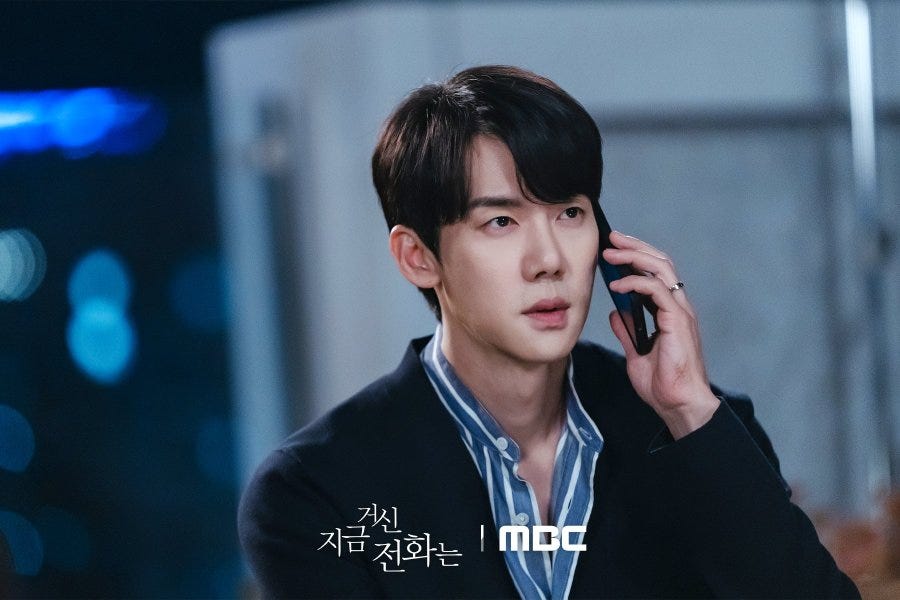Now that I’m done with Blossom the hype is understandable. For me at least it’s one of the few C dramas of the so-called “idol” variety that (for the most part) does live up to all the attention it’s been getting. While it doesn’t have the “wow” factor for me and I large chunks are only palatable at 1.5, it does at least a couple of important things right. It’s a good drama even if it isn’t a great one. Firstly, like a good marriage it keeps faith with the audience ie. it lives up to expectations and keeps its promises. There’s no unpleasant rug pulling at the 11th hour. No cheating or bait and switch. Everything is consequential. Everyone gets exactly what they deserve and the payoff is satisfying. I’ve always liked Li Yunrui even in Love Like the Galaxy and I’m still hoping that he will pair up with Zhao Lusi as leading man one day. He’s extremely likeable here as Song Mo aka Yan Tang — with a boy-next-door charm and a smile that lights the room. The leads have good chemistry although I’m not entirely sure how I feel about Meng Ziyi as Shou Gu. Generally she’s adequate to the task and to be fair she’s a better representation of a woman of her time than many female leads in these types of shows. It could just be the fact of how the character is depicted. Shou Gu seems impossibly capable even if she’s the beneficiary of a rebirth.
Secondly, to its credit the show manages tells a true story with confidence. Like the myriad of dramas that have popped out of the C drama oven the last two years, this one is unequivocally about marriage and the different kinds of marriages that serve to illustrate the main idea whether they be good, indifferent or downright ugly. Even while it injects a decent amount of political intrigue to pacify the discontented types like me, ultimately it’s all tied to the Emperor’s relationship with the Empress.
The overarching narrative is this: Men and women are meant to work together for the good of all. Whenever men and women are at odds or in an adversarial relationship, everyone loses. Marriage and procreation are how civilizations perpetuate but that can only happen when the sexes work cooperatively holding proven values. When they collaborate with common goals, magical things happen. There’s even a cheesy dream sequence after Song Mo is tortured with hallucinogens that hammers this home. Socially men and women are of equal importance although their roles are different. A civilization can only hold it together when they are able to successfully pass on their values to the next generation.
It takes a while to get there but when Song Mo and Shou Gu finally tie the knot, the ceremony is surprisingly detailed. This signals that this is what all of plotting and scheming is leading to. On top of that, the leads embody the exemplary marriage. Not because they are perfect people but because they are of one mind. A couple united becomes an unstoppable force of nature. More importantly a strong marriage means good things for not just the couple involved but the clan, the community, society and the nation. This is perhaps why the second half of the show is better than the first because the set up for the message feels like deliberate postponement.
At the end of the day, the emperor’s worst enemies comes from within his own household. Yes, there’s nothing new in that trope but this show is rather more purposeful in making that statement. If the father and the mother of the nation can’t get along or trust each other, it doesn’t bode well for those caught in the crossfire. A no brainer.
There are plenty of short C dramas out there about a couple who are legally married to each other but they are completely unaware that they are married to each other. They routinely miss each other outside of work hours but meet each other in the battleground of business. Inevitably they fall in love… and suffer pangs of guilt over it. The reasons why they don’t recognize each other are many but the whole silly conundrum results due to neglect and a lack of curiosity because everything can be resolved if the parties involved would just cast their eyes on their marriage certificates. Here’s an example of one that’s watchable and not unnecessarily protracted.
It’s farcical and the joke gets old after a while but the point is well-taken. It’s an allegory that’s a bit shaky in the middle. Too many people don’t take their marriages seriously. Certainly not as seriously as their careers or jobs. Years of taking each other for granted leads to indifference and it’s not hard to see how that could lead to adultery and frustration.
As mentioned in a previous post, When the Phone Rings with all its layers of thriller mayhem and family soap opera insanity is unabashedly a convoluted but corrective guide to a happy marriage. It turns out that the man of this story has always liked his mute wife but turns mute on this subject. In fact the running gag regarding the first 3 years of marriage is that he “the spokesperson” of the country barely speaks to his own wife. He sends her text messages like he would his work subordinates and then wonders later why she’s so desperately unhappy. He believes he’s setting her free from her terrible family but in fact for her it’s another set of shackles. The audience is privy to his inner life but she isn’t. Not surprisingly they become veritable strangers living under one roof. He doesn’t know her deepest longings and she really doesn’t know the half it.
In fact, it turns out that the biggest enigma of all is Baek Sa-eon himself. It’s incredible that one man can shoulder this many secrets. Yoo Yeon-seok is superb in the role and he certainly makes it his own. When the 10’o’clock threatening phone calls come, things head into crazy territory but it is also the beginning of a beautiful relationship. This is the part of the drama that matters. The serial killer, missing orphans, the substitute spouse, the substitute offspring, the conspiracy between the two houses… all that is just scaffolding to get people to fix their marriages, families and have more babies.
It’s all about getting back to the basics. Of course whether a 12-episode Netflix melodrama will light the fire and solve the East Asian demographic crisis is doubtful. As far as the much talked about last episode, well, it certainly fits in with the overall soap opera vibe. Sa-eon punishing himself in some self-imposed purgatory is par for the course and it’s an outcome telegraphed all throughout the show. The gaslighting of Sa-eon is also bizarre and there’s never any real pushback. His achievements are his own not “stolen”. It’s hard to imagine the kind of life the other Sa-eon could have had other than being institutionalized. There’s a big pile on in those last few episodes as the Baek family skeletons tumble out of the overcrowded closet. The seething resentment boils over in unpleasant ways. Also the reunion of the leads in the middle of a war zone does feel like the drama had become another drama… if only for a moment.
Perhaps one shouldn’t think too hard and just enjoy the ride. Which I did immensely. I’m sure no one’s counting the number times the leads end up in hospital. I even liked the secondary romance which I seldom do. Without a doubt it’s a trope picnic that’s an invitation to join the dots but I have to say that it does a competent job cramming them all together into a gripping piece of entertainment.
Thanks for reading. If you found it helpful, please like, share, subscribe or leave a comment.




